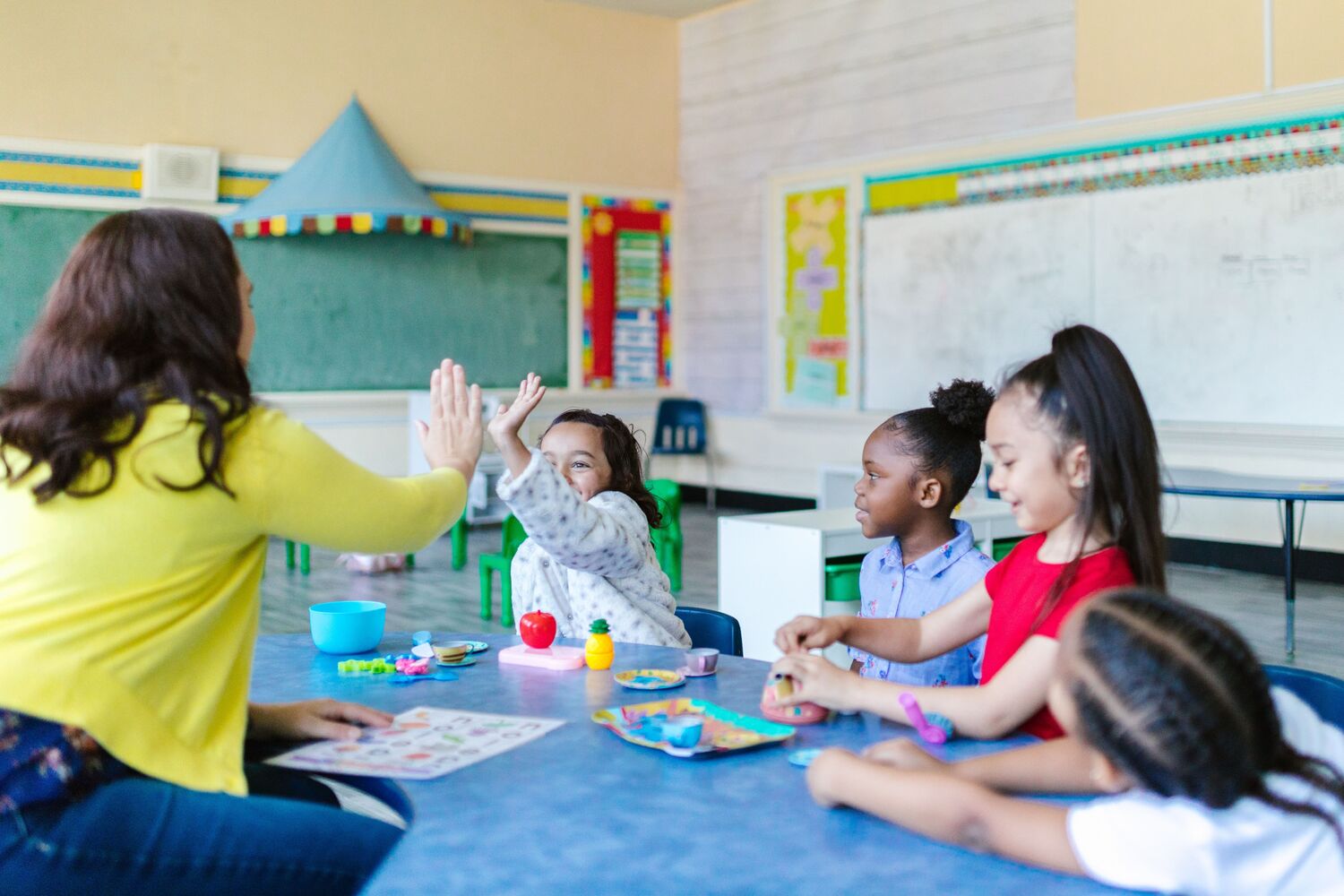
Get in Touch
- Academy Type: Medical Academy
- Principal & Main Contact: Jason Ryder
- Senior Administrator: Jenny Hollis
- Designated Safeguarding Lead: Tom Webb -
-
Deputy Designated Safeguarding Lead:
Jason Ryder -
Clair Mason –
Nathan Gristy -
- SENCO: Cath Marchant -
- Careers Leader: Nathan Gristy -
- Address: Torlands Academy, Merrivale Road. Exeter. EX4 1PT. United Kingdom
- Phone: 01392 495437
- Email:
- Opening Times: Mon-Fri 0845-1630, 37.5 hours per week
About
About
Torlands Academy is a medical provision academy that provides education for children and young people with complex medical and/or mental health needs which prevent them from attending school. We pride ourselves in providing pupils with access to high quality education, ensuring they are thoroughly prepared for the next stage in their learning journey. Personalisation is the cornerstone of our pedagogy; the curriculum is bespoke and programmes are crafted to meet individual needs which demands a totally flexible and adaptable approach to teaching and learning from all involved.
Torlands provides personalised education through a combination of teaching at our centre in Exeter (Merrivale), small group teaching, online learning and 1-1 teaching.
Devon's Local Special Educational Needs & Disabilities Offer
Careers information:
Torlands Provider Access Policy
Follow us on Bluesky to see the wonderful things we get up to at Torlands Academy:
@torlands.bsky.social
Staff
Staff
Jason Ryder
Principal
Jason graduated with a degree in English Literature and started his career as a secondary school English teacher, rising up through the ranks to Senior Assistant Principal. As a passionate exponent for young people with additional needs he moved into the special school sector as a Headteacher in 2018. Jason has worked with young people with a wide range of special needs and disabilities, and he is driven by the belief that all young people deserve an ambitious, high-quality education, no matter what challenges they face. Jason is married with two daughters and he enjoys family time, playing guitar, cooking and travelling.
Lucy Stocker
Senior Principal for Medical Provision
Lucy has been a teacher since 1995 and has worked in Primary Schools and at Cornwall College Camborne before joining CHES in 2008. Lucy started out as an English teacher with CHES and moved on to being the SENCO in 2012. She completed the National Award for Special Educational Needs Coordination in 2014 to help her support SEN pupils within CHES.
Lucy became the Principal at CHES in 2022 and Senior Principal for Medical Provision across Wave Trust in September 2025. Lucy believes that all young people should be entitled to a high-quality education that prepares them for the next steps in their education, and her goal is to provide this education and support in CHES.
Cath Marchant
SENCo
After graduating from University with a degree in Music Performance, Catherine spent a year as a freelance musician before going on to complete a PGCE in Primary Education. She then taught in Essex and Devon in Senior Management and SENCO roles. Catherine also completed a Level 3 Counselling qualification and is an expert in Early Years and the teaching of reading. In 2017 Catherine started teaching at a special school on Dartmoor and in 2018 began working with WAVE. As SENCO Catherine is strongly committed to working alongside staff and families to help improve the life chances and mental well-being of students. She also teaches Mathematics and English on days without a SENCO timetable. Outside work Catherine enjoys reading, listening to music of all genres and spending time with her young family.
Clair Mason
Vice Principal
Clair initially worked as a Veterinary Nurse in Devon. Deciding on a career move, she attended Plymouth University to study for a Cert Ed in Education and a BA Ed. Upon completion of her studies, she then spent many years teaching in secondary schools and delivering BTEC qualifications and HLTA training across Devon. During this time, Clair also worked part time within the Social Care arena, working with young people and their families who were highly vulnerable due to homelessness, substance abuse and mental health needs. Clair has worked within the education and social care arena for over twenty years. Clair is passionate about meeting the many needs of the pupils and families she supports. She is a trained Thrive and ELSA practitioner. At home she likes to keep up with her teenage daughter and take her dogs for long walks on the local beaches and woodlands.
Nathan Gristy
Assistant Head of School
Having graduated from Newcastle University with a degree in Land Resources, Nathan undertook a PGCE at Leicester University and went on to teach geography in a number of mainstream schools. It was during this time that he became increasingly interested in the reasons behind the poor outcomes for students with additional needs. This lead Nathan to a career change where he worked for the Youth Offending Service, championing the importance of education for young people at risk of offending. In more recent years Nathan has worked with the young persons' charity, Young Devon, managing a busy drop-in centre and an accommodation project supporting young people leaving the care system. Prior to starting with Wave, Nathan worked with excluded students in the Torbay area, developing his interest in use of the outdoor environment as a resource to support young people with social and emotional needs. When not at work, Nathan enjoys being in the outdoors, ideally in or on the water.
Academy Info
Academy Info
Curriculum
Our Curriculum at Torlands
Our personalised curriculum is designed to ensure that pupils’ health and exceptional circumstances do not adversely affect their education. Our aim is to reduce pupils’ anxiety around any missed learning through enabling them to progress academically, socially and emotionally. We aim to foster pupils’ innate interest in learning and motivation to achieve through access to a good quality academic, spiritual, moral, cultural and social education.
Our pupils have supported opportunities to engage in a rich variety of learning experiences designed to help them to achieve their potential. Every offer is bespoke and tailored to meet pupils’ individual needs, with the aim of building pupils’ self-esteem, self-confidence and resilience alongside their academic progress. Progress is monitored carefully; learning objectives and personal goals are designed to stretch and challenge and provide progression back into school.
On arrival, subject specialist staff use their expertise to ascertain pupils’ prior learning, and any learning gaps, in order to identify baseline levels of English, Maths and Science. These baselines are used in conjunction with the data that is provided by mainstream schools to ensure that teaching and learning is pitched at the right level, with the most effective balance of challenge and support.
Reading
Staff and pupils are encouraged to read for pleasure and to share their love of reading. We celebrate the sense of well-being reading brings through greater self-awareness, insight and empathy. We appreciate that reading inspires curiosity about the wider world, which is vital for our pupils.
Literacy leads in each subject actively promote cross-curricular vocabulary curiosity and subject specific reading. We recognise that developing reading skills across the curriculum improves vocabulary, comprehension and topic specific understanding. It also deepens pupils’ ability to make inter-disciplinary connections and improves their lateral thinking and problem solving skills.
Reading assessments are completed on entry and a literacy intervention programme is put in place to support pupils when needed. Teachers and Learning Support Mentors promote and embed opportunities to develop fluency and comprehension in reading through the use of bespoke strategies to meet individual pupils’ needs.
We recognise the importance of teaching phonics and strategies for Early reading and all primary pupils receive support from staff who have received training in this area. We use the RWInc and Freshstart SSP programmes to support pupils to learn to read successfully and with fluency. We also collaborate with main schools to follow their phonics and reading schemes to support continuity and reintegration as appropriate.
Learning Support Mentors and Pastoral Support workers work closely with teachers to provide a range of interventions and support, including home visits. This includes reading and writing interventions, support with dyslexic style difficulties, exam practice, communication and life skills, and personal development.
Primary
Our primary pupils follow the National Curriculum for English, Maths, Science and Relationships and Health Education, with enrichment Art, Cooking and online Computing offered. We collaborate with pupils’ mainstream schools to support reintegration.
We use the RWInc and Freshstart SSP programmes to support pupils to learn to read successfully and with fluency when needed, as literacy and communication skills are a high priority.
Key Stage 3
Our Key Stage 3 pupils follow the National Curriculum for English, Maths, Science, Art and Personal, Social, Health, Citizenship and Economic Education and Careers with enrichment Cooking, Forest School, online Computing and Tasters (virtual Spiritual, Moral, Cultural and Social assemblies). Reading, Physical Education and Well-being, Art, Cooking and Music independent learning activities provided.
Literacy interventions and Personal Development support delivered through Learning Support and Pastoral Support Team.
We collaborate with pupils’ mainstream schools to support reintegration.
Here are some examples of our KS3 offer – see PDF below. For more information, please contact us.
The aim is for the young person to move through the different offers to aid reintegration to school.
Key Stage 4
Our Key Stage 4 pupils follow the National Curriculum for English, Maths, Science, Art & Design, History, Psychology and Personal, Social, Health, Citizenship and Economic Education and Careers with enrichment Cooking, Forest School, online Computing and Tasters (virtual Spiritual, Moral, Cultural and Social assemblies). Reading, Physical Education and Well-being, Art, Cooking and Music independent learning activities provided.
Literacy interventions and Personal Development support delivered through Learning Support and Pastoral Support Team.
We collaborate with pupils’ mainstream schools to support reintegration.
Here are the qualifications we offer at Torlands, as well as our enrichment and PSHCE/RSE programme of study and Careers guidance. For more information, please contact us.
AQA Certificate in Further Mathematics
AQA Trilogy (Combined) Science
Here are some examples of our KS4 offer – see PDF below.
The aim is for the young person to move through the different offers to aid reintegration to school.
Documents
Subject Areas
Subject Areas

English & Reading

Maths

Science

Art & Creativity
Follow link to Torlands Academy Virtual Art Exhibition 2025
Follow this link to see Torlands Virtual Exhibition 2023

Careers

ICT

Humanities

PE & Outdoor Learning

PSHCE

Personal Development: Enrichment & Engagement

Psychology
Student Data
Referrals
Referrals
Torlands is an interim provision for children who are unable to attend school for medical reasons. We aim to reintegrate all pupils at the earliest opportunity.
For a pupil to be considered for Torlands, they will need to be referred to the Inclusion Team at Devon County Council by a relevant medical professional, and by their registered mainstream school. Relevant medical Professionals include:
• Member of Community Paediatrician Team
• Hospital Consultant
• Clinical Psychologist
• Consultant Child & Adolescent Psychiatrist
• CAMHS Senior Practitioner
Referral forms can be found at:
Map
Map
Latest News
Latest News
-
Glendinning Academy Named Lead School for Music!
We are thrilled to say that Wave Trust’s Glendinning Academy have been selected as a Lead School for Music by Devon Music Education Hub.
Glendinning is one of only three Special Educational Needs and Disabilities (SEND) schools across Devon to receive this prestigious recognition.
Read more here:
Glendinning Lead School for Music
-
Wave Summer newsletter 2025
Here is our Wave Summer 2025 Newsletter. Find out what we have been getting up to across the Trust this term.
Wave Trust Newsletter Summer Term 2025
-
Wave Spring Newsletter 2025
Here is our Wave Spring 2025 Newsletter. Find out what we have been getting up to across the Trust this term.
-
Wave Autumn Newsletter 2024
Here is our Wave Autumn 24 Newsletter. Find out what we have been getting up to across the Trust this term.
-
Wave Summer Newsletter 2024
Here is our Wave Summer 24 Newsletter. Find out what we have been getting up to across the Trust this term.
Wave Trust Summer 24 Newsletter
Online Lessons
Online Lessons
Term Dates & Events
Term Dates & Events
Wave Trust Term dates 2025-2026
Autumn Term
- Staff training day: Monday 1 & Tuesday 2 September 2025
- Term commences: Wednesday 3 September 2025
- Half Term: Monday 27 October to Friday 7 November 2025
- Term commences: Monday 10 November 2025
- Last day of term: Friday 19 December 2025
Spring Term
- Staff training day: Monday 5 & Tuesday 6 January 2026
- Term commences: Wednesday 7 January 2026
- Half Term: Monday 16 to Friday 20 February 2026
- Term commences: Monday 23 February 2026
- Last day of term: Thursday 2 April 2026
Summer Term
- Term commences: Monday 20 April 2026
- May Day Bank Holiday: Monday 4 May 2026
- Half Term: Monday 25 to Friday 29 May 2026
- Term commences: Monday 1 June 2026
- Staff training day: Monday 29 June 2026
- Last day of term: Thursday 23 July 2026
Wave Trust Term dates 2026-2027
Autumn Term
- Staff training day: Thursday 3 & Friday 4 September 2026
- Term commences: Monday 7 September 2026
- Half Term: Monday 26 October to Friday 6 November 2026
- Term commences: Monday 9 November 2026
- Last day of term: Friday 18 December 2026
Spring Term
- Staff training day: Monday 4 & Tuesday 5 January 2027
- Term commences: Wednesday 6 January 2027
- Half Term: Monday 15 to Friday 19 February 2027
- Term commences: Monday 22 February 2027
- Last day of term: Thursday 25 March 2027
Summer Term
- Term commences: Monday 12 April 2027
- May Day Bank Holiday: Monday 3 May 2027
- May Day Bank Holiday: Monday 31 May 2027
- Half Term: 1 June 2027 to Friday 4 June 2027
- Term commences: Monday 7 June 2027
- Staff training day: Monday 28 June 2027
- Last day of term: Friday 23 July 2027
Documents
Child Protection & Safeguarding Policy
Child Protection & Safeguarding Policy
Torlands Academy recognises that the safety and welfare of children is paramount and that we have a responsibility to protect children in all of our academy activities. We take all reasonable steps to ensure, through appropriate procedures and training, that all children, irrespective of sex, age, disability, race, religion or belief, sexual identity or social status, are protected from abuse.
We endeavour to provide a safe and welcoming environment where children are respected and valued. We are alert to the signs of abuse and neglect and follow procedures to ensure that children and young people receive effective support, protection and justice.
We listen to our pupils and take seriously whet they tell us, children are aware of the adults they can talk to if they have a concern. When there are concerns for a child's welfare, we may need to share information and work in partnership with other agencies. We will ensure concerns are discussed with parents/.carers first unless we have reason to believe that by doing so would be contrary to the child's welfare.
Our Child Protection and Safeguarding policy underpins and guides our safeguarding procedures and protocols.
